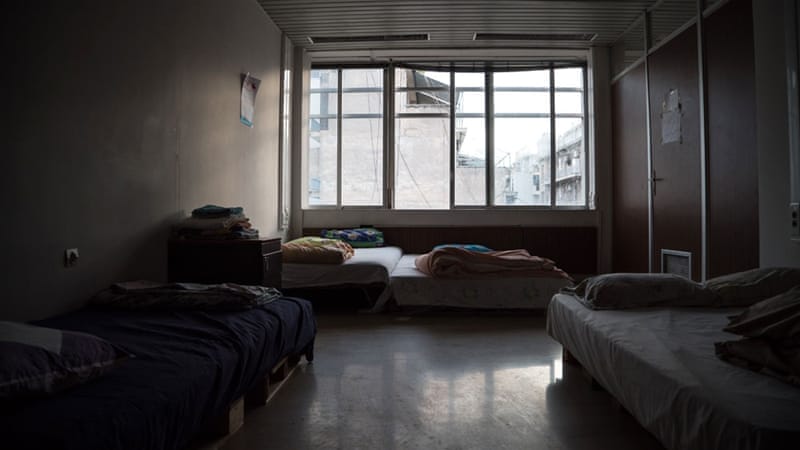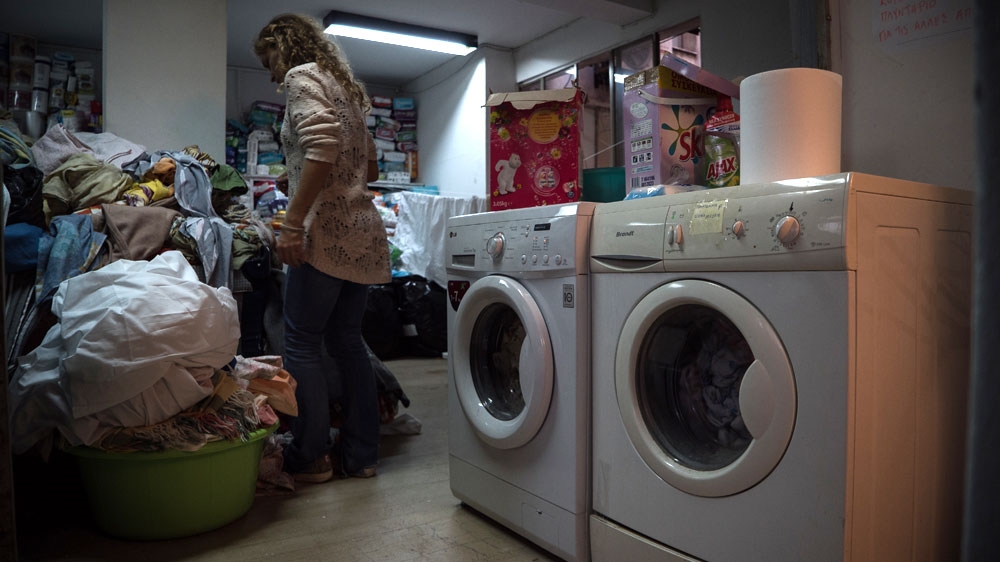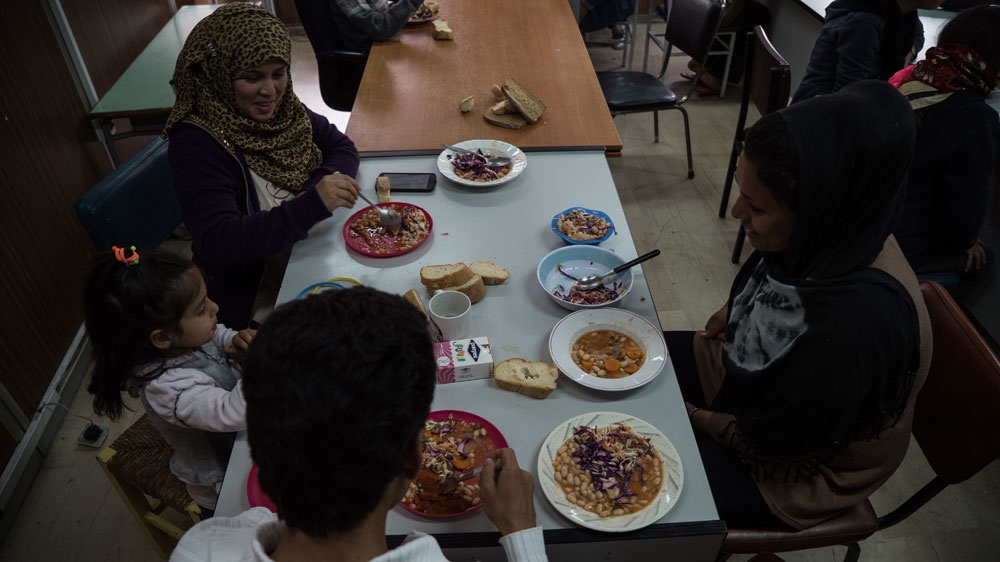Helping People Help Themselves
"People trust us because we don't use the people as customers or voters."
"Every failure of the system proves the idea of the anarchists to be true."
"They [refugees in dire need] are living organisms: Kids go to school, some wee born in the squat, we've had weddings inside."
Tasos Sagris, 45, Void Network anarchist group, Athens, Greece
"We decided to do something in Athens about the refugee crisis. We had a full summer of experience under our belts and felt that refugees needed a safe space when they get to Athens, especially as the weather gets worse. From Athens, they still have a long journey ahead of them."
"The act of squatting in this building was a message to the government: It is failing everywhere and we are putting a spotlight on it."
"We are anti-authoritarians. We reject the assistance of the state, NGOs, charities and businesses."
"This is a project by the people. We believe that these are the key principles of self-organisation, and we want to take the struggle into our own hands."
Mimi, 34, anarchist, squat member
 Greek anarchists provide a shelter for refugees at an abandoned government building in Athens [Sorin Furcoi/AL Jazeera)
Greek anarchists provide a shelter for refugees at an abandoned government building in Athens [Sorin Furcoi/AL Jazeera)Greeks may be living in parlous economic times, as one of the European Union's most financially troubled states, forced to live in a kind of austerity that harms Greek pride leading the population to wonder whether they'd be further ahead out of the EU, yet the country is also challenged with a huge influx of refugees and migrants from the Middle East and North Africa, and is doing what it can to cope. Even so, there are some among its citizens who are critical of what the state provides for the refugees.
State-run refugee camps are cramped and crowded, holding over 60,000 migrants and asylum seekers. They are seen to be hugely inadequate, so much so that human rights groups have condemned the camps, characterizing them as squalid and unsafe. A situation which has led Greek's anarchists to take action of their own. And that action has resulted in the anarchists responding to the plight of the refugees by providing food and shelter.
Shelter that has arisen out of their propensity to defy the norms of civil law by occupying buildings no longer in use and transforming them into squats that they now operate as abodes for refugees, alongside catering to their own needs. Refugees who are grateful for the generous space they are given and the dignity they are afforded by the privacy and concern for their well-being that the anarchists have devoted themselves to.
Austerity policies forced upon Greece by global circumstances whose recession in 2008 left the country in worse shape than many of its EU counterparts has left a government with scarce resources, where dwindling social benefits offered to citizens fail their needs. In that failing many citizens no longer have faith in their government. And so, the ranks of the anarchist class have swelled as people decide to take matters concerning them into their own hands.
Among concerns they have is the well-being of people worse off than they happen to be. Social activism perhaps serves as a restorative balm for people who discover that their dreams and aspirations have been compromised by circumstances beyond their control. And what they can control, they are dedicated to. Citizen action has now resulted in "self-managing social centers" cropping up across the country supported through private donations, from the proceeds of concerts, exhibitions and bars open to the public.
Some 250 of these "self-managing social centers" have now been established across Greece. Some of those involved have focused their attention on the provision of food and medicine handouts to alleviate poverty and the collapse of public services. Leftists and anarchists have found common cause in focusing on housing refugees which Greece became host to in 2015 since the European Union and the Balkan nations tightened their borders, leaving refugees stranded.
 Even volunteers' duties at Notara are divided up
according to anarchist principles and everyone participates in the
work [Sorin Furcoi/AL Jazeera]
Even volunteers' duties at Notara are divided up
according to anarchist principles and everyone participates in the
work [Sorin Furcoi/AL Jazeera]But living in 15 buildings, abandoned and now under the charge of anarchists in a burst of citizen action, the role of the anarchists has changed in reflection of what the times require. And at the present time Greeks have developed a deep distrust of authority, mostly thanks to the austerity imposed on the country wracked with debt to international creditors.
So in Athens, the centre of much of the anarchists' attention, in the bohemian neighbourhood of Exarchia squats have bee developed. Police do raid some of those squats operated by anarchists in Thesaloniki, on the Isle of Lesbos and in Athens, but not destructively, stopping short of a full crackdown, reflecting the Syriza party of leftist Prime Minister Alexis Tsipras's values.
The anarchists contend their squats are badly needed as a humane alternative to the state-operated camps. One of the Exarchia squats, a former state secondary school abandoned as a result of structural problems, is home now to 240 refugees from Syria. A chicken coop has been established on the roof. The squats become self-organized communities independent from any state enterprise and nongovernmental organizations.
 Notara 'is far more organised than the camps run by the government', say volunteers [Sorin Furcoi/AL Jazeera]
Notara 'is far more organised than the camps run by the government', say volunteers [Sorin Furcoi/AL Jazeera]Labels: Greece, Human Relations, Refugees, Social Dysfunction

<< Home